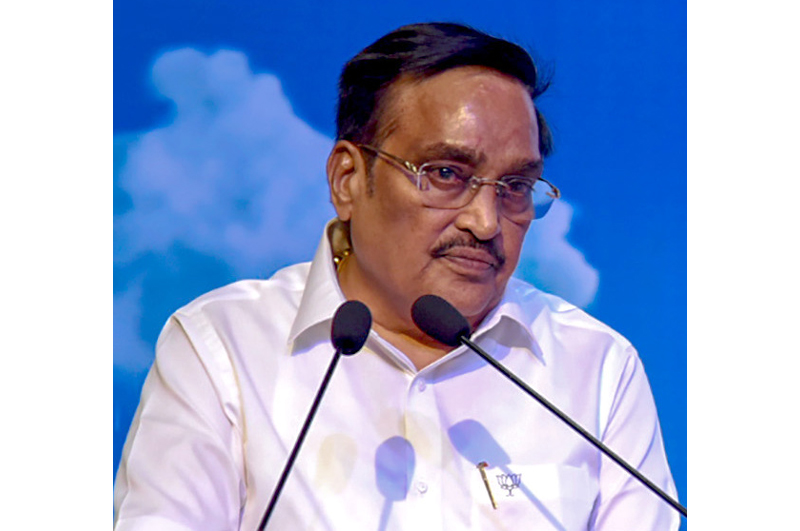DAVOS, Jan 25: Emphasizing the significance of river linking projects for enhanced water management and increased access to drinking water for households, Jal Shakti Minister C R Patil stated that the Centre is currently engaging with multiple states about connecting additional rivers in the near future.
Patil, present at the World Economic Forum Annual Meeting as the first water resources minister to attend this prestigious global summit, remarked that the Modi government’s focus on water has significantly improved the lives of ordinary citizens and empowered women.
“It is peculiar that no water resources had been represented in Davos until now. Our Prime Minister Narendra Modi understood this necessity, and that is why I am here. He recognized that water is essential for growth, industry, agriculture, and the sustenance of life for both humans and animals. He realized the importance of showcasing water at this summit, hence my presence to highlight its crucial role,” Patil shared in an interview.
“Simultaneously, the Prime Minister wants the global audience to be informed about India’s water resource initiatives. There were claims that drinkable water was scarce in India. Today, you can observe that 15 crore households have access to clean water and are no longer suffering from shortages,” the minister added.
“This availability brings numerous advantages. When we discuss women’s empowerment, we remember that women used to walk long distances to fetch water. According to a WHO report, a significant amount of time that women previously spent collecting water is now freed up, allowing them to focus on their children’s education or earning income for their families,” Patil continued.
“By providing water to their homes, women are achieving empowerment. Additionally, the accessibility of clean water is crucial in reducing many diseases and consequently saving considerable money that would have been spent on healthcare.
“The WHO reported that approximately Rs 8.4 lakh crore has been saved in medical treatment costs, all thanks to the availability of water,” Patil noted.
The minister reiterated that river linking projects will promote effective water management and expand water access for many individuals.
He mentioned that a project in Rajasthan has already commenced, and the Ken-Betwa project in Madhya Pradesh is also set to begin.
“We are in discussions with other states, and I believe in the upcoming days we will start working on linking more rivers, fostering a united effort across the country,” he stated.
He asserted that the Modi government’s water initiatives have positively impacted lives and are facilitating greater income generation.
Patil, originally from Gujarat, also highlighted the successful wastewater management in Surat that has dramatically benefited the city.
The India Pavilion hosted a global discussion titled “India’s WASH Innovation: Driving Global Impact in Climate and Water Sustainability.”
The high-profile session, held against the backdrop of best practices showcased by the mission, underscored India’s transformative achievements in water, sanitation, and hygiene (WASH), emphasizing their vital role in promoting global climate resilience and sustainable development.
In his keynote address, Patil outlined India’s progress in executing the Swachh Bharat Mission (SBM) and Jal Jeevan Mission (JJM), which have been instrumental in enhancing sanitation coverage and delivering safe drinking water to millions in rural areas.
The minister highlighted India’s dedication to water conservation and its drive towards a transformative revolution in this essential sector.
Through extensive efforts, the nation has significantly bolstered its water resources, setting a global standard for sustainable water management, he added.
Recognizing water scarcity as a universal challenge, exacerbated by climate change, population growth, and overutilization, he advocated for strengthened international cooperation and collective action.
Rural India is now saving 55 million hours each day that would have been spent on fetching water, thereby enhancing workforce participation and productivity, particularly among women, he explained.
According to WHO, the advancements made in sanitation over the past decade have prevented the deaths of 300,000 children under the age of five. (PTI)


Leave a Reply